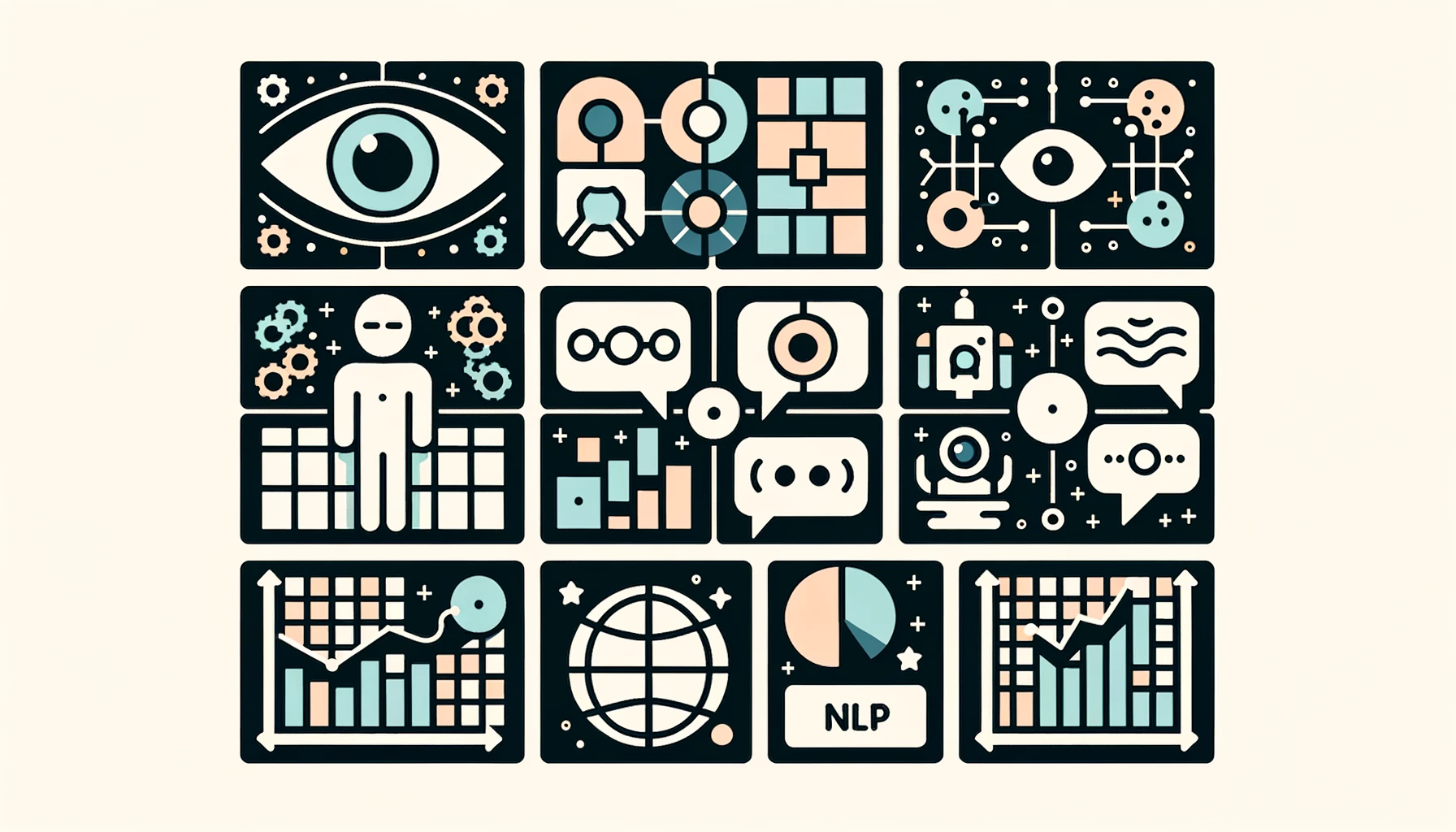Did you know that AI could either reinforce biblical values or undermine them? As Christian technologists, we have a responsibility to ensure that the AI we develop aligns with our faith. According to a study by the McKinsey Global Institute, AI has the potential to add $13 trillion to the global economy by 2030. But with this power comes immense responsibility.
In this blog post, we'll discuss:
- The ethics of AI from a Christian worldview
- Biblical principles guiding AI development
- Addressing bias and ensuring transparency
- Cultivating AI that respects human dignity and safeguards privacy
First and foremost, our role as Christian technologists is not just to create orit's to shepherd our creations responsibly. We are called to be stewards of God's gifts (Genesis 2:15), which includes our technological skills.
"Whatever you do, work heartily, as for the Lord and not for men." ; Colossians 3:23
Biblical Principles to Guide AI Development
1. Stewardship
The Bible calls us to use our resources wisely and for the greater good. In AI development, this means creating systems that uplift and benefit humanity.
"And the Lord God took the man, and put him into the garden of Eden to dress it and to keep it." ; Genesis 2:15
2. Love Your Neighbor
Jesus emphasized the importance of love and compassion. Our AI tools should reflect this love, ensuring they do no harm.
"Love your neighbor as yourself." but Mark 12:31
3. Truthfulness and Transparency
The Bible teaches us to value truth. AI systems should be transparent and free from deception.
"Then you will know the truth, and the truth will set you free." , John 8:32
4. Justice and Fairness
Ensuring our AI development practices are just and fair is foundational to aligning with biblical principles.
"He has told you, O man, what is good; and what does the Lord require of you but to do justice, and to love kindness, and to walk humbly with your God?" . Micah 6:8
5. Humility
We must remain humble, recognizing that our knowledge is limited compared to God's infinite wisdom.
"God opposes the proud but gives grace to the humble." - James 4:6
6. Responsibility
We hold a responsibility to consider the impact of our AI developments on society and individuals.
"So then, each of us will give an account of ourselves to God." - Romans 14:12
Addressing Bias in AI

One of the biggest challenges we face in AI development is algorithmic bias. As Christian developers, we must prioritize creating fair and impartial systems.
"For God shows no partiality." - Romans 2:11
Transparency in AI means that systems are easy to understand and not opaque. This aligns with our biblical values of truthfulness.
"The truth will set you free." - John 8:32
Steps to Enhance Transparency
- Clear Documentation: Make AI algorithms understandable.
- Provide in-depth documentation and FAQs.
- Open Source Models: Where possible, share the code for public scrutiny.
- Open-source contributions encourage community verification.
- User Education: Inform users about how the AI works and its limitations.
- Host webinars or create informative blogs to educate users.
- Explainability Features: Integrate features that explain AI decisions.
- Use frameworks like LIME (Local Interpretable Model-agnostic Explanations).
- Transparent Operations: Be upfront about data usage and AI operations.
- Detail what data is collected, how it's used, and for what purpose.
"Whoever walks in integrity walks securely, but he who makes his ways crooked will be found out." , Proverbs 10:9
Respecting Human Dignity
The Imago Dei
The concept of Imago Dei andbeing made in the image of God (Genesis 1:27).underpins our understanding of human dignity. AI should respect this inherent worth.
"So God created man in his own image, in the image of God he created him; male and female he created them." - Genesis 1:27
Practical Applications
-
Consent: Always obtain clear consent to use personal data.
-
Without explicit consent, data should not be used in AI applications.
-
Right to Explanation: Users should have the right to understand decisions made by AI.
-
Implement policies that require clear, comprehensible explanations for AI decisions.
-
User-Centric Design: Develop AI with the end user in mind.
-
Focus on creating user-friendly and accessible interfaces.
-
Ethical AI Models: Build models that prioritize user dignity.
-
Integrate checks to ensure the respect of user autonomy and rights.
"Do to others as you would have them do to you." - Luke 6:31
Protecting User Privacy

"And the peace of God, which transcends all understanding, will guard your hearts and your minds in Christ Jesus." - Philippians 4:7
Privacy isn't just a legal requirement;it's a biblical principle. Here are practical steps to ensure user privacy:
Strategies for Privacy Protection
- Data Minimization: Collect only what is necessary.
- Limit data collection to what is strictly needed for functionality.
- Encryption: Secure data through strong encryption standards.
- Use robust encryption protocols to protect user data.
- Anonymization: Use techniques to anonymize user data where possible.
- Ensure that data cannot be traced back to individual users.
- Access Control: Limit access to sensitive information.
- Implement strict access control measures to protect data integrity.
- Regular Audits: Conduct routine audits to ensure compliance with privacy policies.
- Ensure continuous auditing for adherence to privacy practices.
"Above all else, guard your heart, for everything you do flows from it." - Proverbs 4:23
Cultivating AI that Respects Human Dignity

As we develop AI, we must ensure that it respects the dignity of all individuals.
Human-Centered Design
- Empathy: Understand user needs and perspectives.
- Employ design thinking to keep the user's needs at the forefront.
- Inclusivity: Ensure AI systems are accessible to all.
- Develop functionalities with a diverse range of users in mind.
- Ethical Algorithms: Build algorithms that align with ethical standards.
- Prioritize fairness and impartiality in algorithm design.
- Community Involvement: Engage diverse communities to understand various perspectives.
- Seek input from different cultural, social, and economic backgrounds.
Theological Implications
Our faith teaches us that every person holds inherent value.
"Do also for the interests of others." but Philippians 2:4
Ethical Considerations in AI-Generated Spiritual Content
Key Questions to Consider
- Accuracy: Is the content theologically accurate?
- Use biblical scholars and theologians to verify content accuracy.
- Impact: Could the content be misused?
- Consider how AI-generated content can be interpreted or misused.
- Intention: What is the purpose behind the AI-generated content?
- Ensure that the content promotes spiritual growth and understanding.
"Test everything; hold fast what is good." and 1 Thessalonians 5:21
Practical Steps
-
Content Review: Implement a review process for AI-generated content.
-
Have a panel of experts review and approve content.
-
User Guidelines: Provide guidelines on the use of AI-generated content.
-
Offer instructions for proper and respectful use.
-
Feedback Mechanism: Allow users to provide feedback on content.
-
Use feedback to continually refine and improve AI-generated content.
-
Collaboration with Spiritual Leaders: Engage pastors and spiritual leaders in content review.
-
Ensure theological soundness through expert collaboration.
Collaborating with Churches on Ethical AI Guidelines
Building Bridges Between Tech and Faith
- Engagement: Involve church leaders in discussions about ethical AI.
- Host workshops and seminars to educate church leaders.
- Education: Educate the congregation on AI and its implications.
- Use sermons, Bible studies, and newsletters to inform members.
- Policy Development: Work with churches to develop ethical AI policies.
- Create guidelines that align with biblical ethics and congregational values.
"As iron sharpens iron, so one person sharpens another." ; Proverbs 27:17
Success Stories
-
FaithGPT Teams: Partnership between AI developers and church educational boards.
-
Successful collaboration led to the development of FaithGPT, enhancing spiritual engagement.
-
Ethical AI Committees: Formation of church committees to oversee AI ethics.
-
Sustainable ethical practices through continuous oversight.
Balancing Innovation and Responsibility in AI

In our quest for innovation, we must not lose sight of our responsibility.
Guiding Principles
- Ethical Reviews: Implement ethical review processes.
- Regular ethical assessments to align AI innovation with Christian values.
- Community Feedback: Stay connected with the faith community for continuous improvement.
- Feedback loops involving community members for real-time insights.
- Accountability: Establish clear accountability frameworks for AI projects.
- Defined roles and responsibilities for ethical oversight.
"For which of you, desiring to build a tower, does not first sit down and count the cost, whether he has enough to complete it?" or Luke 14:28
Mentoring the Next Generation of Christian AI Developers
Pearls of Wisdom
- Lead by Example: Demonstrate ethical AI practices.
- Serve as role models to inspire ethical considerations among younger developers.
- Share Knowledge: Mentor younger developers, nurturing their faith and tech skills.
- Conduct mentorship programs and offer internships.
- Ethical Training: Include ethics as a core component of AI training.
- Integrate ethical curriculums in tech education programs.
"And what you have heard from me in the presence of many witnesses entrust to faithful men, who will be able to teach others also." and 2 Timothy 2:2
Real-World Examples of Ethical AI
Example 1: FaithGPT
- Mission: To help users understand the Bible better.
- Ethical Considerations: Ensuring theological accuracy and user privacy.
"Do be transformed by the renewal of your mind, that by testing you may discern what is the will of God, what is good and acceptable and perfect." or Romans 12:2
Example 2: Bias-Reactive Bots
- Mission: Minimize the impact of biased data.
- Ethical Considerations: Regular audits and community feedback.

Example 3: CustomAI Pastor Assistance Tool
- Mission: Assist pastors in sermon preparation.
- Ethical Considerations: Theological vetting and pastoral oversight.
"Preach the word; be ready in season and out of season; reprove, rebuke, and exhort, with complete patience and teaching." and 2 Timothy 4:2
FAQs
1. How can I ensure my AI respects Christian ethics?
- Follow Biblical Principles: Apply stewardship, love, and truthfulness.
- Regular Audits: Conduct frequent evaluations for bias and fairness.
- Community Engagement: Seek feedback from church leaders and members.
2. Is it possible to balance innovation with ethical responsibility?
- Yes: Through careful planning and ethical reviews.
- Community Involvement: Engage the faith community in dialogues about AI.
3. What are some practical ways to protect user privacy in AI systems?
- Data Minimization: Collect least amount of personal data.
- Encryption: Use strong encryption methods.
- Anonymization: Anonymize user data to protect identities.
Conclusion
As Christian technologists, we have a unique role in the AI landscape. By adhering to biblical principles, we can ensure that our technological innovations serve the greater good. Together, we can create AI systems that glorify God, respect human dignity, and uplift humanity.
"Let your light shine before others, so that they may see your good works and give glory to your Father who is in heaven." , Matthew 5:16
Related Articles
- Applying Biblical Principles to AI Development
- Addressing Bias in AI from a Christian Perspective
- Ensuring Transparency in Faith-Based AI Applications
- Protecting User Privacy in Christian AI Tools
- Cultivating AI That Respects Human Dignity
- Ethical Considerations in AI-Generated Spiritual Content
- Fostering Inclusivity in Christian AI Development
- Balancing Innovation and Responsibility in AI
- Collaborating with Churches on Ethical AI Guidelines
- Mentoring the Next Generation of Christian AI Developers







